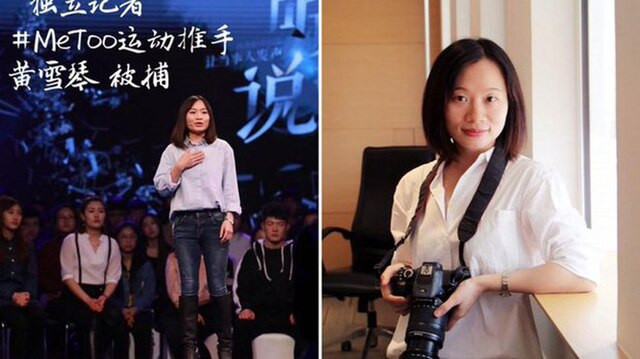A Chinese court sentenced prominent #MeToo activist and journalist Huang Xueqin to five years in prison for subversion of state power. Huang, known for her groundbreaking reports on sexual abuse and her vocal advocacy for women's rights, was found guilty on Friday by the Guangzhou Intermediate People's Court, according to her supporters and a copy of the verdict.
Huang, 36, and labor rights activist Wang Jianbing, 40, who was sentenced to three and a half years, plan to appeal their sentences, supporters said. The charges stem from gatherings they held to discuss social issues, which authorities claimed incited dissatisfaction with state power. The activists have been in detention since their arrest in September 2021.
"This is a denial and obliteration of the value of social justice as well as a denial of moderate voices in civil society," said a spokesperson for the Free Huang Xueqin and Wang Jianbing group, who requested anonymity due to safety concerns. The group argued that Chinese authorities are using national security as a pretext to suppress social welfare activists.
The court proceedings, held behind closed doors, barred consular representatives from the United States, Denmark, France, Germany, New Zealand, and the UK from attending, despite their attempts. Heavy security surrounded the courthouse on the day of the sentencing.
"This is a very bad sign," the spokesperson continued, expressing concern over the broader implications for human rights and social advocacy in China. Amnesty International also criticized the convictions, calling them "malicious and totally groundless."
The charge of "inciting subversion of state power" is frequently employed by the Chinese government against dissidents. It carries a maximum prison term of five years but can be extended if the suspect is deemed a ringleader or has committed serious crimes. The sentences consider time already served, and both Huang and Wang have been in detention for nearly 1,000 days.
Huang's case has drawn particular attention due to her high-profile work in the #MeToo movement and her involvement in the 2019 Hong Kong anti-government protests. Just before her arrest, she was scheduled to fly to the UK to begin a master's degree at the University of Sussex on a British government-funded scholarship.
"China firmly opposes any country or organization challenging China's judicial sovereignty," Chinese foreign spokesperson Lin Jian said, defending the court's decision. He reiterated that China is a country based on the rule of law and that anyone breaking the law will be punished.
Huang's and Wang's lengthy pre-trial detentions included months of solitary confinement. Supporters have reported that they denied any wrongdoing during their trial last year. The police in Guangzhou did not respond to requests for comment.
This sentencing is part of a broader crackdown on activists in China. Earlier this year, women's and labor rights activist Li Qiaochu was sentenced to three years and eight months for "inciting subversion of state power." She has been detained intermittently over the past four years.
"The Chinese government is clearly terrified of the emerging wave of activists who dare to speak out to protect the rights of others," said Sarah Brooks, Amnesty International's China Director. "These convictions will prolong their deeply unjust detention and have a further chilling effect on human rights and social advocacy."






